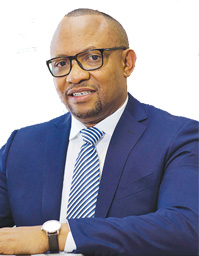
Geingob brags in Doha
“While the world has experienced unprecedented economic growth and wealth creation until the onset of the recent and still ongoing global economic crisis, disparities between nations and in nations have continued to rise at the same time, posing a threat to sustained economic growth.” These were the remarks of Dr. Hage Geingob at the third UNCTAD Biennial Investment Forum this week.
Geingob criticised the Washington consensus saying that one of its fallacies was that of the invisible man who implies that the market knows how to allocate resources with minimal state intervention required.
“We now know that this is not the case. In fact, even strong supporters of the Washington based consensus cum ‘liaises faire’ approach have changed their minds, and during the midst of the crisis, governments in all parts of the world in particular in the West turned to Keynesian stimulus support measures,” said Geingob.
He bragged about the Namibian “eclectic and pragmatic approach” towards economic development by focusing on basic pertinent issues. He said that one of the reasons domestic and foreign businesses operate in Namibia is because of its peaceful state. “Without peace and security, sustainable development is just not possible.”
Geingob said that Namibia scores consistently high on institutional indicators available measures such as the World Economic Competitiveness Forum, Heritage Foundation, the Mo-Ibrahim Index, Transparency International and others, stating the media as one of those institutions, which operates freely with no interference.
Education is one of the steps to inclusivity in Namibia, it receives about 25% of the national budget each year. “We deliberately invested heavily in education and the social upliftment of our people,” said Geingob.
Acknowledging the huge disparities, Geingob said “focusing on basics and foundation issues are necessary but not always sufficient conditions for inclusive and sustained growth.”
It is for this reason that government adopted an affirmative action and employment equity legislation, which encourages employers to address legacies of the past in their employment practices.
He also touched on the principles put in place to guide economic development, which are stated in the long-term Vision 2030, as well as the small and medium size enterprises, which serve as important vehicles for inclusive growth and job creation.








































